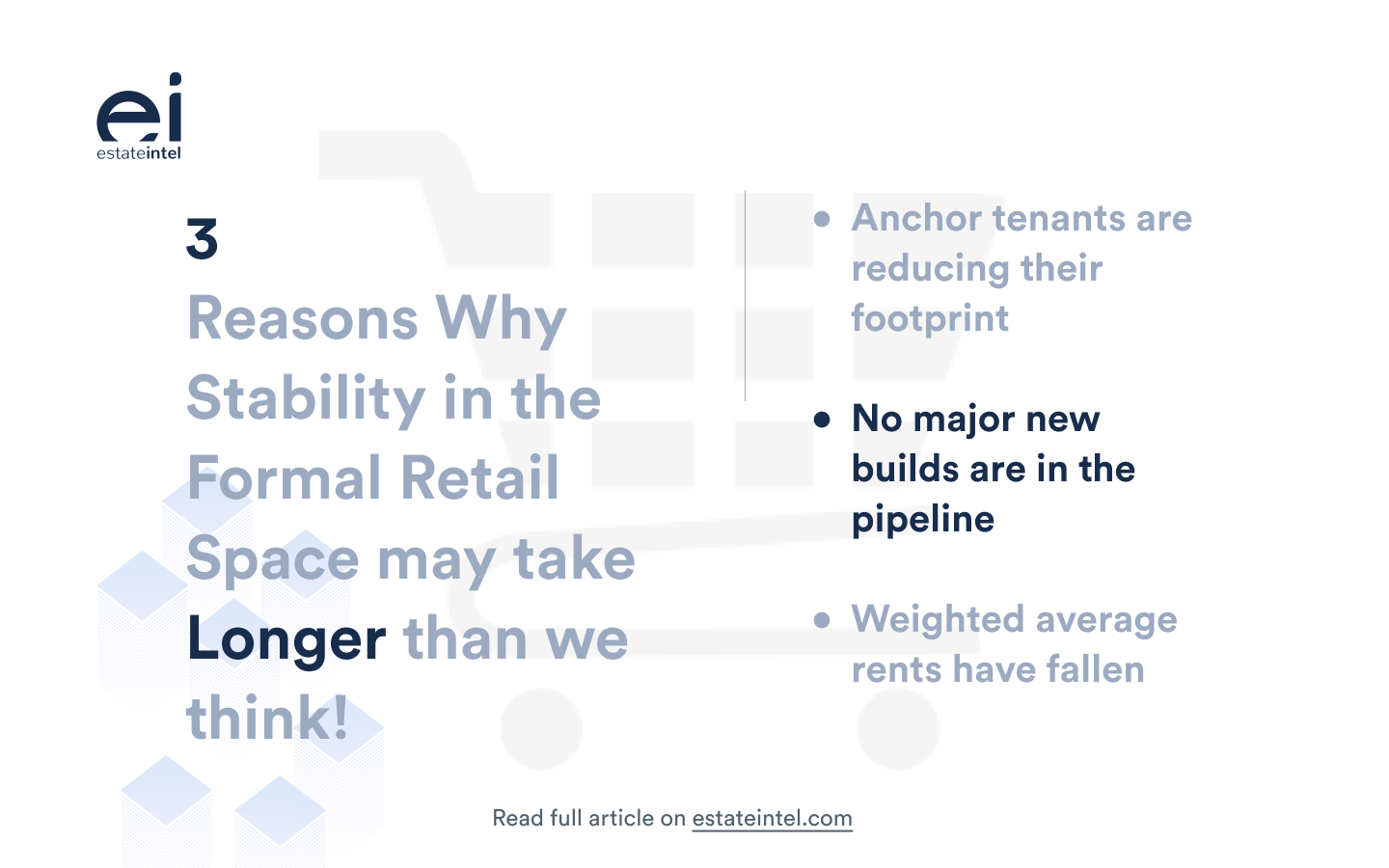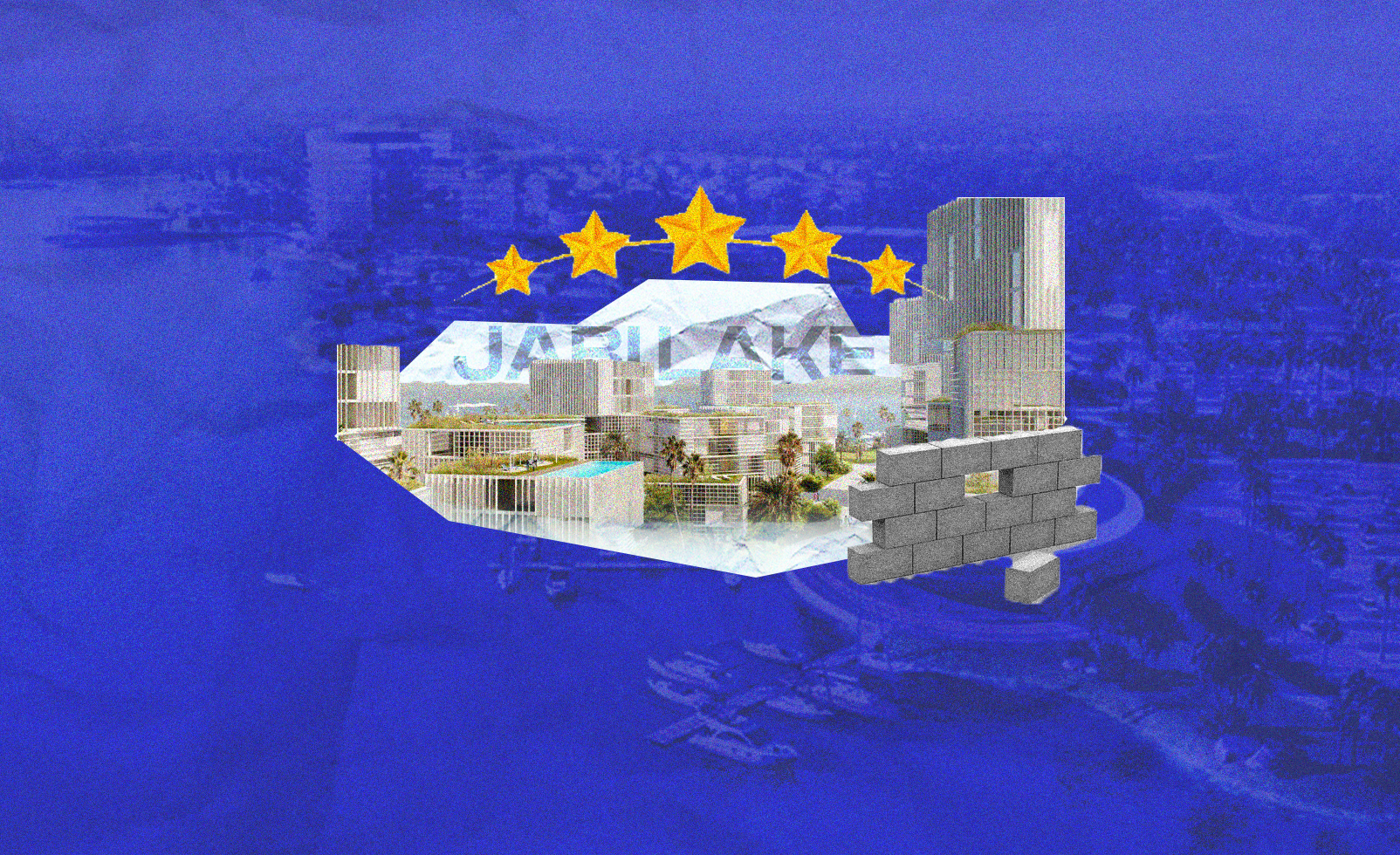3 reasons why stability in the formal retail space may take longer than we think
Dolapo Omidire . 2 years ago

Share this post
Subscribe to our newsletter
Once the darling of the commercial real estate space, where optimistic private equity investors took high-risk positions, Nigeria’s retail industry has had it tough for the past few years. Even though it may appear that some stability is in view, here are 3 reasons to believe it may take longer than expected. Anchor tenants are…
Once the darling of the commercial real estate space, where optimistic private equity investors took high-risk positions, Nigeria’s retail industry has had it tough for the past few years. Even though it may appear that some stability is in view, here are 3 reasons to believe it may take longer than expected.
Anchor tenants are reducing their footprint
The largest anchor tenants in Nigeria’s formal retail centres include Shoprite, Game, and the large cinema chain groups. As you may already know, Shoprite disposed of their Nigeria operations to Persianas linked Ketron Investment Limited. Ketron is expected to review their occupancy strategy and exit locations that have performed poorly to manage costs.
In The Palms Lekki, Lagos’ first formal mall and 3rd largest with 20,000sqm of retail space:
- The Genesis Deluxe Cinema, a sub-anchor tenant, has not been operational for over 3 months.
- Large anchor type spaces in excess of 500sqm are being used in an informal department store format.
- Smaller retailers including Celio and Puma have also reduced their mall footprint, transitioning from their current line shops to slightly smaller spaces.
In their year-end 2020 report, Game, who is a part of the larger Massmart Group, reported that the majority of Massmart’s realised and unrealised foreign exchange loss was primarily a result of currency weakness in Mozambique, Nigeria, and Zambia, as well as the foreign exchange movements arising from the foreign exchange contracts. As a result, the group will review its store portfolio outside the South African Development Community (SADC) country region to achieve a ‘coherent portfolio’ focus that will release intellectual, manufactured, and financial capital resources that will be reinvested. In this case, a review may also indicate potential disposal and exit.
Finally, Hubmart also made the recent decision to exit Lennox Mall, which was their first and only outlet located within a formal retail space, and not in a standalone facility. They spent a little over 3 years here as an anchor tenant.
While there is some positive news that can be seen through Ebeano’s expansion and recent Pick ‘n Pay’s entry, the mixed performance in this segment sends the wrong signal.
No major new builds are in the pipeline
As we hinted in our most recent note, the largest investors in the commercial real estate space are slowing down or increasingly taking an income approach, opting to invest in existing derisked assets in lieu of greenfield development projects. Actis sent out the mandate for Broll to dispose of land where they planned on building Twin Lakes Mall. An offer to re-acquire Ikeja City Mall followed shortly after.
While there have been deliveries in the retail space over the past few years, most have been small with gross leasable areas less than 8,000sqm. A few examples in Lagos include KAF Mall and Jara Mall in Lagos.
Weighted average rents have fallen
Average rents in core markets including Lagos, were US$50 – US$80/m²/month in 2016, according to Broll Nigeria. At the time of the new sale announcement, Ikeja City Mall, the city’s prime retail centre had a weighted average rent of $42/m²/month. Using the lower limit, this represents a 16% decline in rentals over a 6 year period.
Rentals in 2nd tier cities such as Delta, Asaba, and Owerri, were also previously reported to be c. $35-$50/sqm/month in 2016. However, Resilient’s retail portfolio shows that weighted average rents in these cities are currently averaging out at $20/sqm/month, representing a worse decline of 43%.
What next?
It’s hard to say. Currency stability against the US Dollar and easier access to foreign exchange for imports will go a long way in helping retailers survive. This is crucial, especially for those within formal retail centres that rely on imports to restock.
On the other hand, ‘neighbourhood malls’, have been a prominent theme when discussing what the future of sustainable retail in Nigeria might look like. Though there are exciting opportunities here, the space is increasingly challenging and competitive as weak planning law enforcement means that residential conversions in high traffic regions will easily price out formal retail centres, no matter how affordable.
What are your thoughts on the future of formal retail in Nigeria? Follow us on Linkedin and let us know what you think!
Related News
You will find these interesting

Bisi Adedun . October 12, 2023
Jabi is an area located within the phase 2 vicinity of the Abuja Municipality, known for housing the iconic Jabi Lake. I...
abuja
Jabi Lake

Tilda Mwai . August 23, 2023
africa
Africa real estate outlook

Deborah Jesusegun . June 02, 2023
African
building
